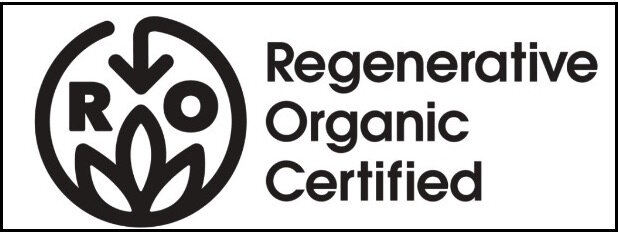Regenerative Agriculture
Troon Vineyard is now both Demeter Biodynamic® and CCOF Organic Certified. Certainly, that’s an accomplishment that I am more than proud of attaining in the minimum required three years. Yet, there are parts of both certifications that have always made me uncomfortable.
The USDA Organic certification has been largely taken over by industrial organic farms. For example, the massive national distribution of certain organic salad brands. It even allows hydroponic agriculture. The concept of “organic” agriculture that does not involve soil certainly does not meet the standards I would set for a natural food growing system.
Then there is biodynamics, which I was drawn to in two ways. First, I had tasted too many excellent wines made biodynamically and I aspired to make wines with that kind of life and energy. I wanted to make better wine and was convinced this was the way to achieve that goal. Second, was the focus in biodynamics on rebuilding soil microbiome through a proactive series of probiotic applications based around compost, compost teas and other fermented applications. I believed that the tenets of biodynamics created an ideal framework to rebuild our soils and, indeed they did at Troon Vineyard. As with almost every biodynamic winegrower I know, I was drawn to the regenerative farming concepts of biodynamics, but was less than comfortable with Rudolf Steiner and the Anthroposophical side of biodynamics. Like most biodynamic wineries, we focused on the practical aspects of biodynamics and more-or-less ignored the Anthroposophical side.
Apparently, many others had the same feeling I did as there is now a new certification that incorporates the best of both organic and biodynamics while actively incorporating the human element. This new certification includes an essential word — regenerative. Called the Regenerative Organic Certification it combines the restrictive nature (telling you what you can’t use) of organic certification with the proactive, probiotic nature of biodynamics and creates a more complete structure for rebuilding soil. As it says on their website, “farm like the world depends on it.”
My search for a framework for regenerative viticulture soon transformed into the broader view of the “whole farm” concept that defines biodynamics. Practicing regenerative agriculture is more than simple organic viticulture. Biodiversity creates more biodiversity and is the key to regenerative agriculture. At Troon Vineyard our viticultural inputs now include cider apple trees, vegetable gardens, sheep, chickens, grains, bees, pollinator habitats and compost — lots and lots of compost.
The Regenerative Organic Certification excites me as it incorporates all the things I find important about the Organic and Biodynamic® Certifications while also resolving my concerns with both. I also find the addition of social fairness as a cornerstone of the program brings an important element not included in the other programs. Obviously, industrial farms would have difficulties meeting this requirement. The animal welfare requirements, which are also included in the Demeter Biodynamic® Farm Standard, are also important additions as many animals on organic certified farms, while better than industrial feed lots, do not live in humane conditions.
We will certainly keep both our Organic and Demeter Biodynamic® Certifications. You have to be certified organic to achieve the Regenerative Organic Certification and the framework of biodynamics has achieved all I had hoped and more.
The focus on regeneration is what is key to me. We have to put back more than we take to establish a natural food growing system. Farm like the world depends on it — because it does.
Here is some recommended reading on regenerative agriculture:
Hidden Half of Nature by David Montgomery
Restoration Agriculture by Mark Shepard
